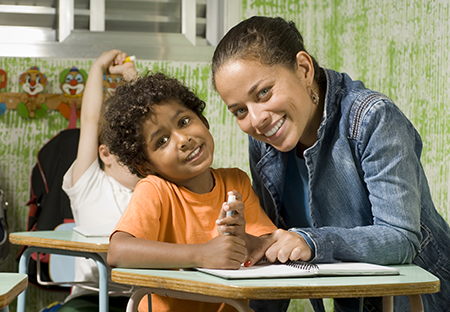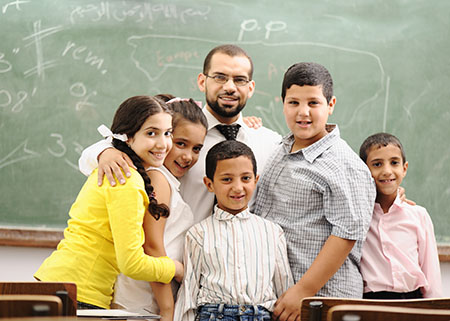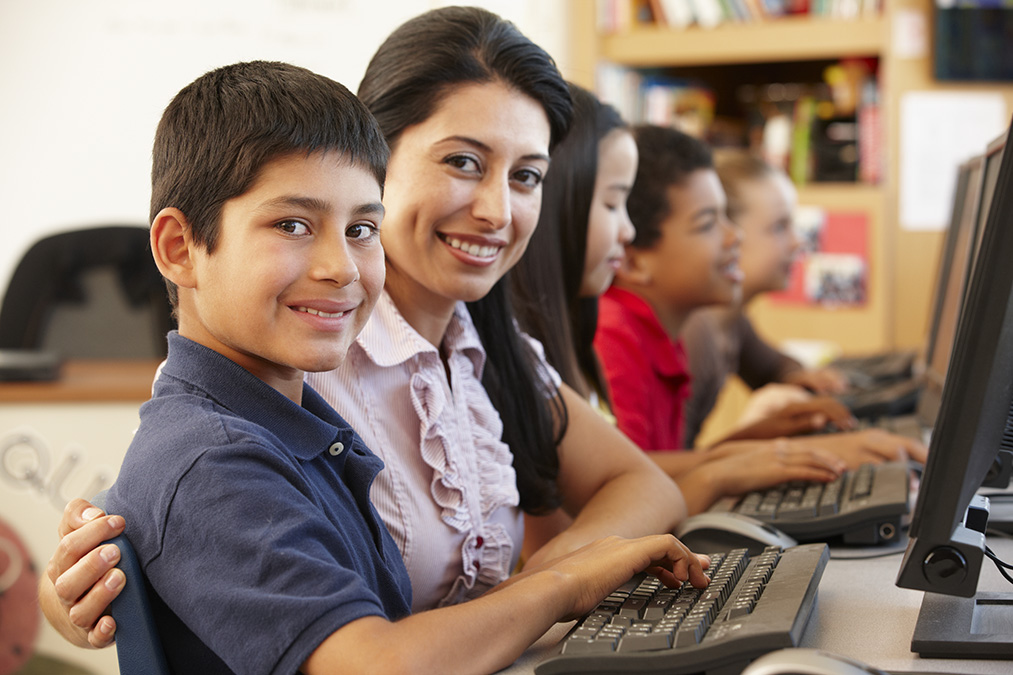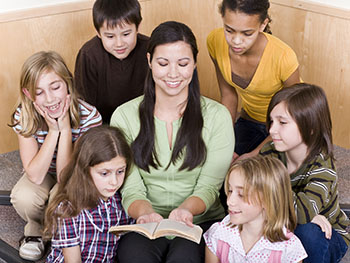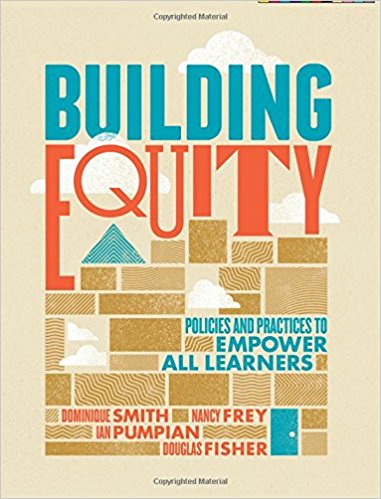Culturally Responsive Teaching
Articles
Creating Culturally Responsive Schools (2005)
~ Barbara Bazron, David Osher and Steve Fleischman
Culturally Responsive Classroom Management Strategies (2008)
~ Steinhardt School of Culture, Education & Human Development
Culturally Responsive Teaching for American Indian Students (2003)
~ Cornel-Hammer Pewewardy and Patricia Cahape, ERIC Digest
Developing a Culturally Sensitive Curriculum: Teaching Native American Children About Psychological and Behavioral Health (2011)
~ William J. Warzak, Rebecca K. Dogan, and Maurice Godfrey
Incorporating Cultural Themes to Promote Preschoolers' Critical Thinking in American Indian Head Start Classrooms (2011)
~ Mia Dubosarsky, Barbara Murphy, Gillian Roehrig, Linda C. Frost, Jennifer Jones, and Stephan P. Carlson, with Nette Londo, Carolyn J.B. Melchert, Cheryl Gettel, and Jody Bement
Using Culturally Based Education to Increase Academic Achievement and Graduation Rates (2008)
~ National Indian Education Association
Research, Papers, and Literature Reviews
Culturally Relevant Classroom Management Strategies for American Indian Students (2004)
~ Helen Hammond | University of Texas at El Paso
Culturally Responsive Instruction for English Language Learners With Learning Disabilities (2014)
~ Michael John Orosco, PhD and Rollanda O'Connor, PhD
Culturally Responsive Teaching Efficacy Beliefs of In-Service Special Education Teachers (2014)
~ Szu-Yin Chu, PhD and Shernaz Garcia, PhD
Development and Preliminary Analysis of a Rubric for Culturally Responsive Research (2014)
~ Audrey A. Trainor and Aydin Bal
Media
Becoming a Culturally Responsive Teacher (2012)
~ YouTube
How do you reach students who are culturally and racially different from you? This course provides thought-provoking background and practical suggestions for teachers seeking the answer to this question. Participants explore their own assumptions about race, class, and culture; and learn strategies for creating classrooms that are culturally inviting to all. Classroom footage illustrates principles of Culturally Responsive Teaching, including affirming students' cultural connections, stressing collectivity as well as individuality, and managing the classroom with firm, consistent, caring control.
An Introduction to Culturally Relevant Pedagogy: How to Make Culturally Relevant Pedagogy a Reality in Your Classroom (2010)
~ Michelle Garcia | Teaching Tolerance via YouTube
Education experts Jackie Jordan Irvine, Geneva Gay and Kris Gutierrez explain how to make culturally relevant pedagogy a reality in your classroom.
Office Chat: Culturally Responsive Education (2008)
~ YouTube
Dr. Kavatus Newell of the University of Mary Washington College of Graduate and Professional Studies discusses Culturally Responsive Teaching.
Booklets, Bulletins, Journals, and Magazines
Culturally Responsive Parental Involvement: Concrete Understandings and Basic Strategies (2002)
Strong parental involvement in a child’s education and school environment is essential to the success of the child and the school. Such parental involvement is an ongoing, comprehensive, purposeful, and relentless process designed to ensure parents’ connection to the school’s culture, purpose, and organization. Yet meaningful parental involvement has traditionally eluded schools. It is typically limited to parent-teacher conferences, and even then, teachers decry parents’ inconsistent attendance or continued absence. Even in those schools where parental involvement is considered strong, only some parents are involved, or they are invited to the school by the teachers or administrators.
~ Sabrina Hope King and A. Lin Goodwin
Reports and Publications
Guidelines for Culturally Responsive School Boards (2002)
~ University of Alaska at Fairbanks
Wisconsin's Framework for Equitable Multi-Level Systems of Support
~ Wisconsin RtI Center, Wisconsin Department of Public Instruction
Reference and Resource Links
The Metropolitan Center on Research and Equity and the Transformation of Schools
NYU Metro Center has developed an extensive library of tools and resources, which include books and publications for professional development, policy papers, and a cohort of other materials that address equity, achievement, and inclusive teaching and learning. This unique bank of resources also includes podcasts, webinars, and selected videos.
Organizations, Agencies, and Associations
Center for Culturally Responsive Teaching and Learning (CCRTL) exists for making cultural responsiveness a meaningful aspect of everyday life (mission). Being culturally responsive is an approach to living life in a way that practices the validation and affirmation of different cultures for the purposes of moving beyond race and moving below the superficial focus on culture.
Culturally Responsive Urban Education (CRUE) Center is committed to developing the capacity of educators and school systems in Colorado to meet the needs of culturally, linguistically, and economically diverse urban students by preparing school personnel in culturally responsive pedagogy and practice, and pursuing a research agenda that guides improvements in our work. The CRUE Center is located at the University of Colorado-Denver.
Wisconsin Positive Behavioral Interventions and Supports (PBIS) Network operates within the Wisconsin Response to Intervention (RtI) Center with a specific focus on behavior.
Wisconsin Response to Intervention (RtI) Center is a product of collaboration between the Cooperative Educational Service Agency (CESA) Statewide Network and the Wisconsin Department of Public Instruction (DPI). The center was created to assist Wisconsin’s educational systems to build capacity, adopt and implement high quality practices, make informed decisions, ensure sustainability of efforts and increased success for all students.
Recommended Reading
Building Cultural Reciprocity with Families: Case Studies in Special Education (1999)
~ Beth Harry, Maya Kalyanpur, and Monimalika Day
Eight case studies help to show how using cultural reciprocity to build a framework for relationships can help to strengthen interactions between special education professionals and families. Harry, Kalyanpur, and Day, all special education scholars, examine the culture of special education itself, while helping to show educators how they can understand and appreciate how their cultures and those of their clients can affect relationships. They also give suggestions about how to facilitate conversations with families in order to form cultural goals for their children.
Building Equity: Policies and Practices to Empower All Learners (2017)
~ Dominique Smith, Nancy Frey, Ian Pumpian, Douglas Fisher
Imagine a school with a diverse student body where every student feels safe and valued, and all students—regardless of race, culture, home language, sexual orientation, gender identity, academic history, and individual challenges—have the opportunity to succeed with challenging classes, projects, and activities. In this school, teachers notice and meet students' individual instructional needs and foster a harmonious and supportive environment—and students feel empowered to learn, to grow, and to pursue their dreams. This is the school all our students need and deserve.
Cultural Reciprocity in Special Education: Building Family-Professional Relationships (2012)
~ Maya Kalyanpur Ph.D. and Beth Harry Ph.D.
To succeed in increasingly diverse classrooms, tomorrow's special educators need explicit training on working effectively with all families. Prepare the next generation of teachers with this accessible text, developed by two highly respected experts on cultural and linguistic diversity and inclusive education. Ideal for use as a supplementary textbook in a wide range of courses related to special education, this book gives educators a practical framework for cultural reciprocity—a process that helps professionals and families examine their own values, respect each other's differences, and collaborate skillfully to benefit children.
Culturally and Linguistically Responsive Teaching and Learning: Classroom Practices for Student Success (2011)
~ Sharroky Hollie
Written to address all grade levels, this book provides teachers with strategies and suggestions to support their culturally and linguistically diverse students. With the influx of cultural diversity in schools, teachers can use the strategies in this resource to improve on the following five pedagogical areas: classroom management, use of text, academic vocabulary, and situational appropriateness.
Culturally Proficient Coaching: Supporting Educators to create Equitable Schools (2006)
~ Delores Lindsey, Richard Martinez, and Randall Lindsey
To arm educators with the tools necessary to close the achievement gap, this straightforward guide blends the Five Essential Elements of Cultural Proficiency with the Five States of Mind of Cognitive Coaching. It offers a practical strategy for being mindfully attuned to—and leveraging—cultural diversity to optimize student learning. Boosting educators’ cultural confidence and consciousness while honing their coaching skills, this interactive resource features: (a) Action-planning worksheets, (b) Reflective questions, (c) Coaching maps and conversation vignettes, and (d) Real-life examples through a composite case story.
Culturally Proficient Education: An Asset-Based Response to Conditions of Poverty (2010)
~ Randall B. Lindsey,Michelle S. Karns, and Keith T. Myatt
Countering the perspective that students from poverty come to school with deficits that prevent them from learning, this resource offers educators the knowledge and skills to maximize educational opportunities for all students, independent of students’ socioeconomic status. Using the framework of cultural proficiency, this guide features: (a) An examination of how poverty intersects with other groupings, including race, ethnicity, and language acquisition; (b) Research-based teaching strategies that draw on student strengths and assets; (c) Vignettes and case studies; and (d) Reflective activities for understanding your own assumptions and values regarding equity.
Culturally Proficient Instruction: A Guide for People Who Teach (2011)
~ Kikanza Nuri Robins, Randall B. Lindsey, Delores B. Lindsey, Raymond D. Terrell
Culturally proficient instruction is the result of an inside-out journey during which you explore your values and behaviors while evaluating practices of your workplace. In the newest version of their best-selling book, the authors invite you to reflect on how you engage with your students and your colleagues as a community of learners. The third edition includes: (a) An updated discussion of standards-based education guidelines, (b) A conceptual framework for the tools of cultural proficiency, (c) New language for understanding the microaggressions of dominant cultures, (d) An integrated guide for use with study groups.
The Culturally Proficient School: An Implementation Guide for School Leaders (2013)
~ Randall B. Lindsey, Laraine M. Roberts, and Franklin CampbellJones
This fully updated second edition of The Culturally Proficient School—likely the most influential book yet on improving the learning experience by valuing diversity and cultural dignity— is more relevant, accessible and effective than ever. Incorporating up-to-date research and reader feedback, the new content includes: (a) Instructive vignettes that reflect contemporary truths about educational diversity and moral leadership; (b) Emphasis on skills development, including the art and science of conversation; (c) A conceptual framework that leaves no doubt about the first steps to take towards a more culturally proficient school.
Culturally Responsive Pedagogy: Working towards Decolonization, Indigeneity and Interculturalism (2017)
~ Fatima Pirbhai-Illich, Shauneen Pete, Fran Martin (Editors)
This book convincingly argues that effective culturally responsive pedagogies require teachers to firstly undertake a critical deconstruction of Self in relation to and with the Other; and secondly, to take into account how power affects the socio-political, cultural and historical contexts in which the education relation takes place. The contributing authors are from a range of diaspora, indigenous, and white mainstream communities, and are united in their desire to challenge the hegemony of Eurocentric education and to create new educational spaces that are more socially and environmentally just. In this venture, the ideal education process is seen to be inherently critical and intercultural, where mainstream and marginalized, colonized and colonizer, indigenous and settler communities work together to decolonize selves, teacher-student relationships, pedagogies, the curriculum and the education system itself. This book will be of great interest and relevance to policy-makers and researchers in the field of education; teacher educators; and pre- and in-service teachers.
Culturally Responsive Teaching and The Brain: Promoting Authentic Engagement and Rigor Among Culturally and Linguistically Diverse Students (2014)
~ Zaretta L. Hammond
To close the achievement gap, diverse classrooms need a proven framework for optimizing student engagement. Culturally responsive instruction has shown promise, but many teachers have struggled with its implementation― until now. In this book, Zaretta Hammond draws on cutting-edge neuroscience research to offer an innovative approach for designing and implementing brain-compatible culturally responsive instruction.The book includes (a) Information on how one’s culture programs the brain to process data and affects learning relationships; (b) Ten "key moves" to build students’ learner operating systems and prepare them to become independent learners; and (c) Prompts for action and valuable self-reflection.
Culturally Responsive Teaching: Theory, Research, and Practice (Multicultural Education Series) (2010)
~ Geneva Gay
The achievement of students of color continues to be disproportionately low at all levels of education. More than ever, Geneva Gay’s foundational book on culturally responsive teaching is essential reading in addressing the needs of today’s diverse student population. Combining insights from multicultural education theory and research with real-life classroom stories, Gay demonstrates that all students will perform better on multiple measures of achievement when teaching is filtered through their own cultural experiences. This bestselling text has been extensively revised to include: expanded coverage of student ethnic groups; a new section on standards and diversity; new examples of culturally diverse curriculum content; more examples of programs and techniques that exemplify culturally responsive teaching; an emphasis on positive, action-driven possibilities in student–teacher relationships; and new material on culturally diverse communication, addressing common myths about language diversity and the effects of “English Plus” instruction.
The Light in Their Eyes: Creating Multicultural Learning Communities (2009)
~ Sonia Nieto
Sonia Nieto reviews where we have been and where we should be going in our pursuit of creating multicultural learning communities in our schools. With a new Introductory Chapter and a new Epilogue, Nieto addresses some of the changes we have experienced during the past decade that help explain the current sociopolitical environment, our increasing diversity, the altering conditions in schools and in society, the influence of poverty on learning, and the impact of NCLB on classrooms and schools. This updated edition of The Light in Their Eyes focuses on the significant role of teachers in transforming students' lives. It considers recent theories, policies, and practices about the variability in student learning and culturally responsive pedagogy and examines the importance of student and teacher voice in research and practice. It also provides an update, in their own words, on former students whose journal entries were included in the first edition.
Multicultural Special Education: Culturally Responsive Teaching (2006)
~ Festus Obiakor
Because of recent demographic changes in our society, general and special educators are challenged to look for innovative ways to maximize all students’ potential in school programs. Multicultural Special Education: Culturally Responsive Teaching is a timely book that examines multiculturalism, disability, and education and focuses on how to make education better for all multicultural learners. Contributions from leading experts examine categories of exceptionalities (from multicultural perspectives), while integrated case studies and chapter material focus on ways to be an effective and culturally responsive educator. Divided into four parts, this new offering examines the foundations of multicultural special education; the categories of exceptionalities from multicultural perspectives; lifespan issues; and the future of the field.
Other People's Children: Cultural Conflict in the Classroom (2006)
~ Lisa Delpit
Winner of an American Educational Studies Association Critics’ Choice Award and Choice Magazine’s Outstanding Academic Book Award, and voted one of Teacher Magazine’s “great books,” Other People’s Children has sold over 150,000 copies since its original hardcover publication. This anniversary paperback edition features a new introduction by Delpit as well as new framing essays by Herbert Kohl and Charles Payne. In a radical analysis of contemporary classrooms, MacArthur Award–winning author Lisa Delpit develops ideas about ways teachers can be better “cultural transmitters” in the classroom, where prejudice, stereotypes, and cultural assumptions breed ineffective education. Delpit suggests that many academic problems attributed to children of color are actually the result of miscommunication, as primarily white teachers and “other people’s children” struggle with the imbalance of power and the dynamics plaguing our system. A new classic among educators, Other People’s Children is a must-read for teachers, administrators, and parents striving to improve the quality of America’s education system.
Strategies for Culturally and Linguistically Responsive Teaching and Learning (2015)
~ Sharroky Hollie
Provides teachers with concrete strategies to support instruction for students with culturally and linguistically diverse backgrounds. Incorporate the tools and tips in this resource into daily instruction to educate students of diverse backgrounds. Educators will learn to examine all aspects of teaching practices in order to be successful in educating all students to the expectation of today's standards. Use this professional resource to build an understanding of the significance of teaching practices, the classroom environment, and assignments in regards to the increasingly diverse student populations.
We Can't Teach What We Don't Know: White Teachers, Multiracial Schools, 2nd ed. (2006)
~ Gary R. Howard and James A. Banks
Gary Howard outlines what good teachers know, what they do, and how they embrace culturally responsive teaching. Howard brings his bestselling book completely up to date with today’s school reform efforts and includes a new introduction and a new chapter that speak directly to current issues such as closing the achievement gap, and to recent legislation such as No Child Left Behind. With our nation’s student population becoming ever more diverse, and teachers remaining largely White, this book is now more important than ever. A must-read in universities and school systems throughout the country, We Can’t Teach What We Don’t Know continues to facilitate and deepen the discussion of race and social justice in education.
We Can't Teach What We Don't Know: White Teachers, Multiracial Schools, 3rd ed. (2016)
~ Gary R. Howard
Making a case for the “fierce urgency of now,” this new edition deepens the discussion of race and social justice in education with new and updated material. Aligned with our nation’s ever more diverse student population, it speaks to what good teachers know, what they do, and how they embrace culturally responsive teaching. This essential text is widely used in teacher preparation courses and for in-service professional development. New for the Third Edition: (a) A revised Introduction that places the book in the context of the 50th anniversary of the 1963 march on Washington; (b) An updated analysis of White social dominance, bringing in Critical Race Theory and reflecting on the racist reaction to the election of our first Black President; (c) More detail to the White Identity Orientations model, bringing in the personal life experiences of several contemporary White racial-justice activists; (d) A new section, “The Whiteness of School Reform,” demonstrating how White social dominance drives much of the corporate school reform movement; (e) A richer discussion of the seven principles for Culturally Responsive Teaching, drawing lessons from the author’s transformative work with school districts throughout the country; (f) An expanded Reflection and Discussion Guide authored by two educators who have been using the book in professional development sessions for many years.
White Teachers/Diverse Classrooms: A Guide to Building Inclusive Schools, Promoting High Expectations, and Eliminating Racism (2006)
~ Edited by Julie Landsman and Chance W. Lewis
For African Americans, school is often not a place to learn but a place of low expectations and failure. In urban schools with concentrations of poverty, often fewer than half the ninth graders leave with a high school diploma. Black and White teachers here provide an insightful approach to inclusive and equitable teaching and illustrate its transformative power to bring about success. This book encourages reflection and self-examination, calls for understanding how students can achieve and expecting the most from them. It demonstrates what’s involved in terms of recognizing often-unconscious biases, confronting institutional racism where it occurs, surmounting stereotyping, adopting culturally relevant teaching, connecting with parents and the community, and integrating diversity in all activities. This book is replete with examples of practice and telling insights that will engage teachers in practice or in service. It should have a place in every classroom in colleges of education. Its empowering message applies not just to teachers of Black students, but illuminates teaching in every racially diverse setting.
The Will to Lead, the Skill to Teach: Transforming Schools at Every Level to Create a Responsive Learning Environment (2011)
~ Anthony Muhammad and Sharroy Hollie
School improvement begins with self-examination and honest dialogue about socialization, bias, discrimination, and cultural insensitivity. In The Will to Lead, the Skill to Teach, the authors acknowledge both the structural and sociological issues that contribute to low-performing schools, and describe how leaders can create a healthy school culture. They offer multiple strategies and activities to improve classroom management, increase literacy, establish academic vocabulary, and create an engaging learning environment. After making a distinction between a staff's will--that is, their belief in all students' abilities along with their determination to make student learning and success a schoolwide priority and a staff's skill their use of quality, responsive methods and activities--the authors submit that healthy school cultures grow out of a marriage of the two. Examine four broad steps to developing a positive learning environment (aligning philosophies, managing frustration, creating a culture of collaboration, and institutionalizing a healthy culture) and uncover the components of responsive pedagogy--a skillful and balanced framework of traditional and culturally responsive activities used in the classroom.
